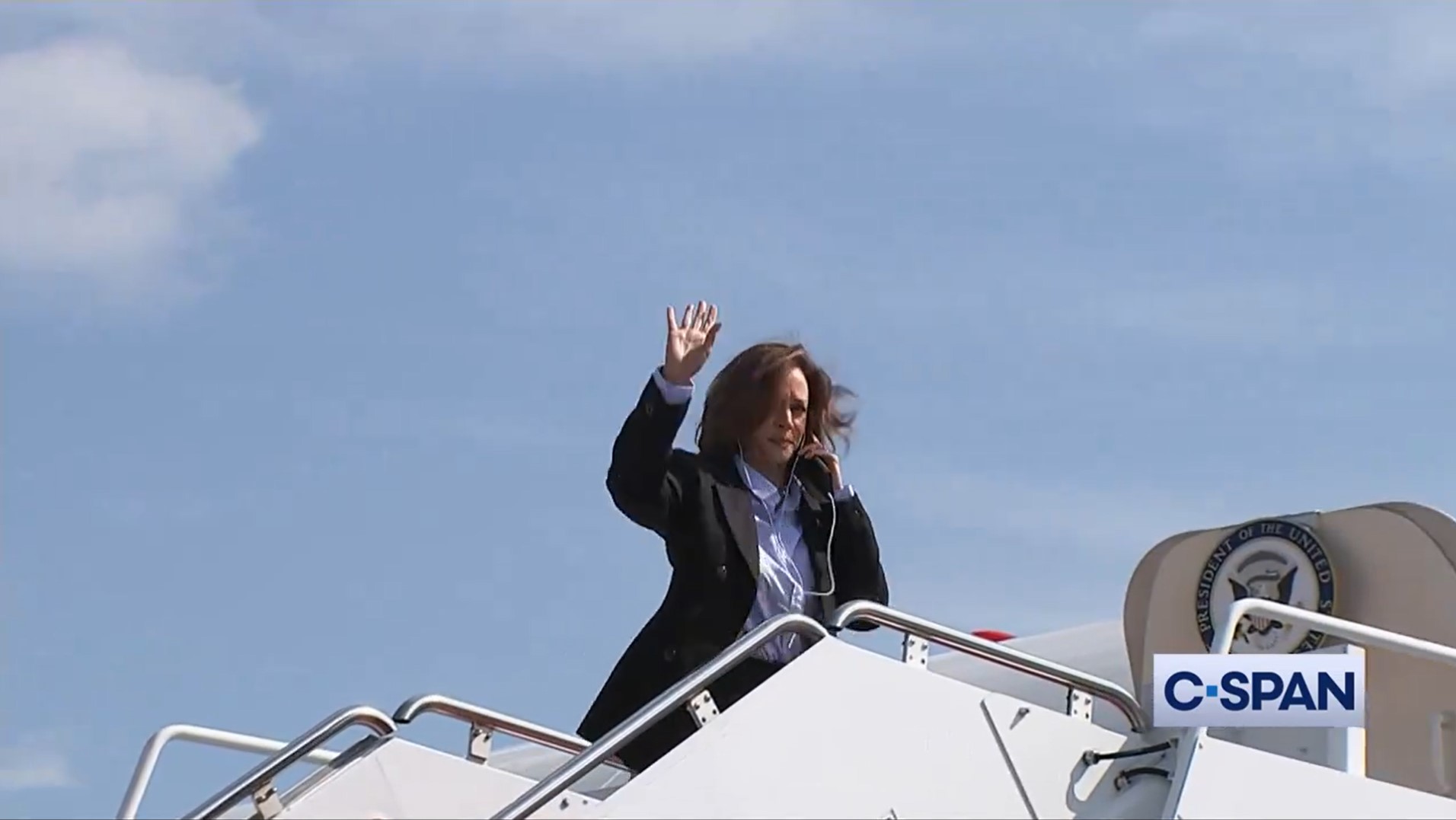In a political climate where every move is scrutinized, Kamala Harris has once again found herself at the center of a media circus, this time for an act that’s raising eyebrows across the political spectrum. Departing from Joint Base Andrews, Harris was captured in a moment that has since sparked widespread commentary: pretending to be on a phone call to seemingly avoid interaction with the press.
This incident, captured and shared widely, shows Harris holding her phone to her ear, but there was a problem…the phone was connected to wired headphones. Critics argue this move is not just transparent but also emblematic of a broader issue with transparency and accessibility in politics.
If you're going to pretend that you're on your phone in order to avoid answering questions from the press, you should probably do a little bit better of an acting job than holding your phone up to your ear while wearing wired headphones.pic.twitter.com/OEFtFAXkCq
— Trump War Room (@TrumpWarRoom) September 2, 2024
For a public figure, especially one in the second-highest office in the land, communication with the press isn’t just expected; it’s a cornerstone of democratic accountability. Harris’s maneuver, whether a genuine call or not, visually reads as an evasion tactic. This isn’t the first instance where Harris has been noted for her reticence or strategic avoidance of unscripted media interactions. Critics from various platforms have pointed out this pattern, labeling it as everything from poor acting to a deliberate strategy to dodge tough questions.
The detail of the wired headphones adds a layer of skepticism to the scenario. In an era where Bluetooth technology is ubiquitous, Harris’ preference for wired headphones has previously been noted as a security measure, avoiding potential digital eavesdropping. However, in this context, it serves as a visual cue that perhaps the phone call wasn’t as spontaneous or necessary as it might have seemed. This choice, while secure, inadvertently highlights the artificiality of the moment, making the act of being on the phone look staged rather than a genuine need for privacy or communication.
This episode feeds into a narrative that Harris, and by extension, the current administration, might be more interested in controlling the message than engaging in open dialogue. For opponents, this is fodder, a sign of weakness or unpreparedness. For supporters, it might be seen as a smart move in a landscape where any off-the-cuff remark can spiral into a news cycle of its own and show how unqualified she is. However, for the democratic process, such actions could deepen public skepticism about politicians’ willingness to engage genuinely with the electorate or the press.
Kamala Harris’s phone incident might seem trivial at first glance, but it encapsulates broader themes of media interaction, public perception, and political transparency.


Leave a Comment